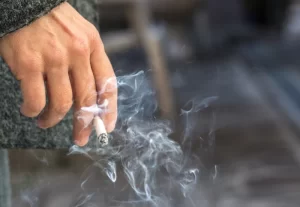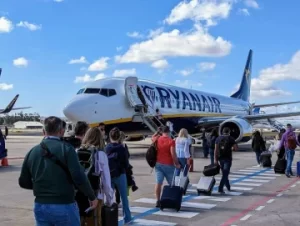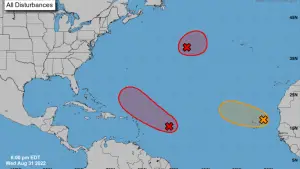Smoking in the Azores down 6.4%
Efforts to raise awareness

Correio dos Açores interviewed Pedro Fins, Regional Director for Preventing and Combating Addictions talking about smoking in the region on the occasion of World No Tobacco Day, which is celebrated annually on the 31st of May
What is the importance of the World No Tobacco Day?
The purpose of this commemoration is to inform the public about the dangers of tobacco use and to raise awareness among governments and civil society for the adoption of effective measures to control tobacco use and protect younger generations for the initiation of consumption.
What is the percentage of smokers in the Azores?
Data from the 2019 National Health Survey, for the Azores, show a total value of 23.38% of smokers, men and women, aged 15 or over residing in the Region.
Has the number of smokers been decreasing or increasing?
From the Regional Health Survey of the Azores, carried out in 2014 (InReS) in the Region, the following conclusions were drawn: 27.6% of the Azorean population, aged between 20 and 74 years old, smoked daily, being more prevalent in men ( 37.6%) than in women (19.3%); 50% of the population has never smoked and 15.6% are ex-smokers.
Comparatively, the data provided by the 2019 National Health Survey allows us to conclude that 21.16% of the population aged 15 years and over consume tobacco daily, being more prevalent in men (31.01%) than in women (12.05 %), and 58.13% have never smoked and 18.31% are ex-smokers. Thus, the data indicate a slight decrease in the numbers of smokers, around 6.4%, from 2014 to 2019.
How is smoking initiation among young people fought?
Initiation to tobacco consumption is fought through prevention, reinforcing awareness and awareness, both at the level of the general population and at the level of young people.
Considering that young people today have a greater awareness of the environmental footprint and of the sustainability of our planet, the fight against tobacco initiation can also be carried out, associated with the environmental aspect, demonstrating the damage that the production chain and consumption of tobacco products and electronic cigarettes affects people’s health and the environment.
Smoking is the cause of many diseases. Are people aware of this, especially young people?
Young people are not aware of the diseases caused by smoking because these diseases appear much later, that is, in the long term. Young people work in the “here and now”, often looking, either in tobacco or in new nicotine devices (heated tobacco, electronic cigarettes) for a sense of pleasure and social integration.
Do you think that people have information but no conscience?
Yes, both young people and the general population have information available about the harmful effects of tobacco, both in terms of the individual health of those who smoke, and in terms of exposure of non-smokers to environmental smoke, in different contexts (at home, in vehicles, in the workplace and in enclosed public spaces). Therefore, I would say that people have conscience, since if they didn’t, they wouldn’t change their behavior or stop smoking.
People often have difficulty or lack of motivation to stop smoking or seek help to do so, so they put off the process with the false belief that diseases only happen to others.
What prevention actions are taken to reduce the number of smokers?
With the aim of intervening, within the scope of reducing the harmful effects of tobacco and, specifically, with the aim of depolluting the air inside houses and cars in the Azores, the Regional Health Secretariat signed a protocol with the Regional Secretariat for Education and Culture and with the University of Minho, in the sense of implementing the 100% Smoke Free Homes and Cars program in the Region. The 100% Smoke Free Homes and Cars intervention is a program to prevent children from being exposed to Environmental Tobacco Smoke, aimed at children in the 4th grade and their parents or guardians. Its main purpose is to increase the prevalence of parents who do not smoke and/or do not allow smoking at home and in the car. It is intended with this program,
The DRPCD intends to promote and support information campaigns and public awareness initiatives, as they allow reaching, in a short period of time, a large number of people, of various age groups and social conditions. At the moment, an awareness campaign is underway on the risks associated with consumption and exposure to tobacco smoke, through radio spots.
It is considered important to strengthen the relationship with the Oncology Center of the Azores on this issue, with the topic of tobacco being transversal to both.
One of the actions of this Regional Directorate is to promote the celebration of World Days, related to the Thematic (World No Tobacco Day, World No Smoking Day), as in the past Non-Smoker Day, in which actions were carried out to prevent the consumption of tobacco in the workplace, in partnership with the “GIROS” prevention team.
It is essential to support smoking cessation, to reduce the prevalence of tobacco consumption, contributing to a wide dissemination of smoking cessation consultations. In this sense, the DRPCD has a leading role in monitoring the functioning of consultations, guaranteeing consultancy/training for health professionals who carry out this work.
The maintenance of the relationship with the National Program for the Prevention and Control of Tobacco of the General Directorate of Health contributes to the constitution of good practices based on the best evidence and its replication in the Region.
What message do you want to leave on World No Tobacco Day?
Continuing to publicize, among young people, the benefits of not smoking and in addition to increasing this individual awareness, follow up on policies that aim to protect the health of our planet.
In particular, make the industry responsible for the environmental damage associated with the production chain of tobacco products and electronic cigarettes, including the payment of costs arising from the collection and treatment of the respective waste.
Helping farmers change their tobacco plantations to sustainable and economically viable food crops.
Raise public awareness of contamination caused by the cycle of production and consumption of tobacco products, in particular cigarette butts, which contain microplastics and toxic substances that contaminate soil, air and oceans.






